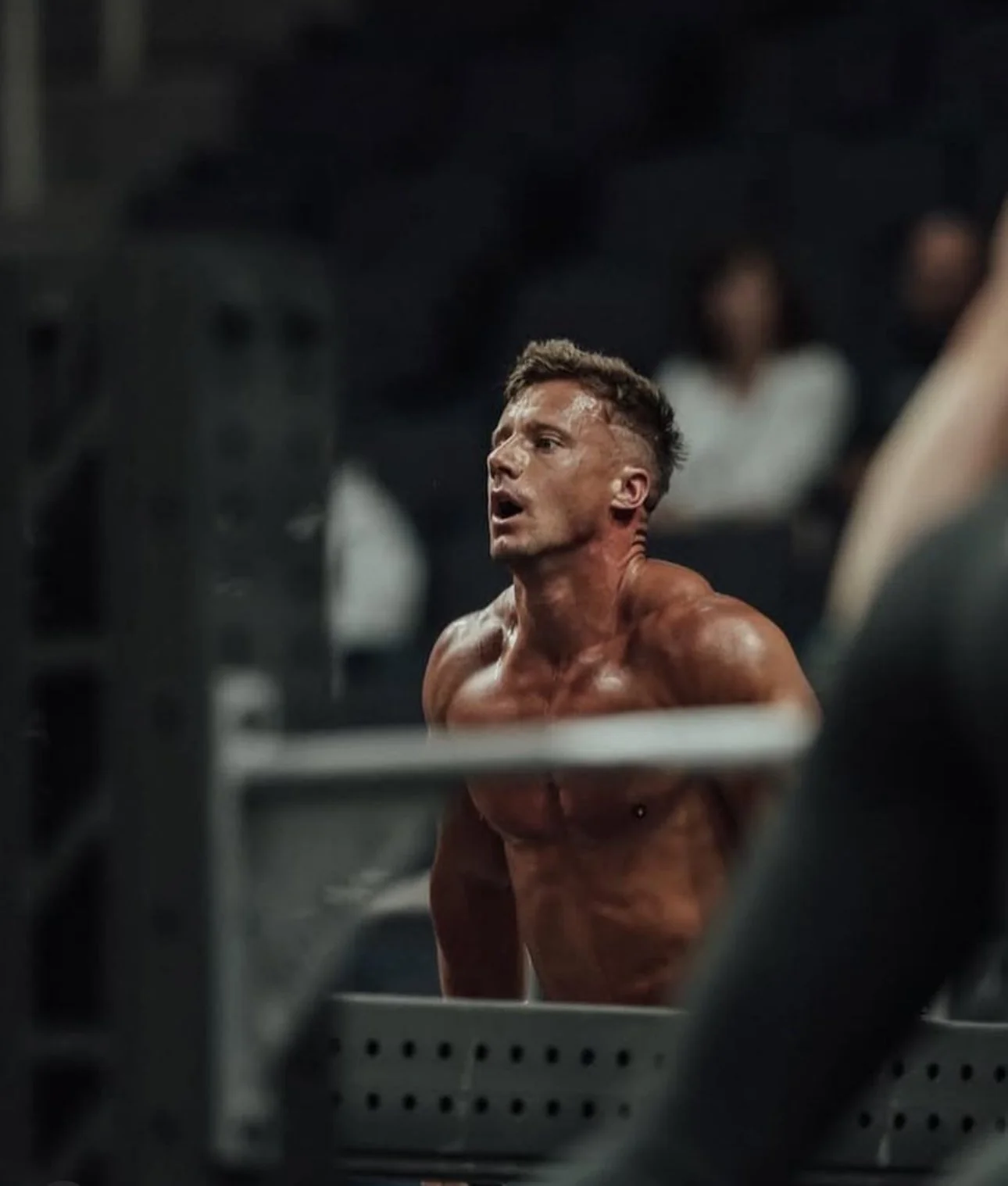Why Champions Compete and Others Just Work Out
Written by Conquer Athlete Coach Jason Leydon, CSCS
Most athletes think the gap between them and a champion is capacity. That’s partially true, but It’s also execution under pressure, the ability to deliver your plan when the room gets loud, the clock gets short, and the bar feels heavier than it did in training. Competition is just an amplifier; it turns your habits into headlines. Champions build habits that hold.
Here’s what they do differently, and how you can start doing it today.
Champions win the warm-up
They don’t wander. They don’t waste energy. Their warm-up is a script: activate, rehearse patterns, confirm pacing, lock one or two cues, and leave the floor with a clear A/B plan. Athletes who “don’t compete well” arrive on the floor still deciding who they are. Champions show up with a decision already made.
Champions keep their world small
When the workout starts, they narrow attention to controllables: breath, cadence, landmarks, transitions. They don’t chase someone else’s story; they run their lap. Non-finishers zoom out and panic, head on a swivel, pace on a wish. Finishers zoom in, eyes on the rep in their hands.
Champions plan to be punched—and are
Everyone has a plan until the first no-rep, the slick bar, the wrong lane, the surprise standard. Champions expect it. They use if-then scripts: If I get a no-rep, then I step back, one breath, re-set my feet, and go. If the rower reads low, then I row strokes per minute, not split. Predictable adversity meets a prepared response.
Champions “turn the page” fast
Good heat or bad heat, they move on. Emotional drag is fitness you can’t use. Champions do a two-minute debrief: What happened? So what? Now what? Then they eat, hydrate, flush, breathe, and review the first two minutes of the next piece. Athletes who struggle carry their last event into their next one like a rucksack.
Champions race with discipline, not bravery
There’s a time to surge, but the best don’t confuse adrenaline with advantage. They honor their opener, give the plan enough runway to work, then make a single decisive move when it matters. Athletes who “don’t compete well” stack micro-mistakes, sloppy breaks, sloppy lines, sloppy transitions, that become a macro-deficit.
Champions separate identity from outcome
Winners don’t need a perfect leaderboard to act like winners. Their identity is execution, not applause. Ironically, that’s why they win more, pressure can’t manipulate what’s already decided.
How to train the champion mindset (weekly)
Pressure Reps: 1–2 times/week, add a judge, a clock, spectators, and unknowns. Keep standards strict. Make it loud.
Environmental Exposure: Practice in a cold bar, a different floor, under bright lights, with lane changes. Build familiarity with chaos.
Competition Playbook: One page: warm-up script, cues, if-then list, opener, surge rule, between-event reset, debrief template. Carry it. Use it.
Language Audit: Replace “I hope” and “I’ll try” with “I will” and “I am.” Your language sets your limits.
The truth is simple: champions aren’t cooler under pressure, they’re prepared under pressure. They’ve rehearsed the moments you’re hoping to survive. If you want different results on game day, stop chasing more capacity and start building repeatable execution. Make your plan real in training, then defend it in competition.
If you want help building your Competition Playbook and pressure-training framework, our coaches at Conquer Athlete do this every week. Show up with a plan. Leave with momentum.

